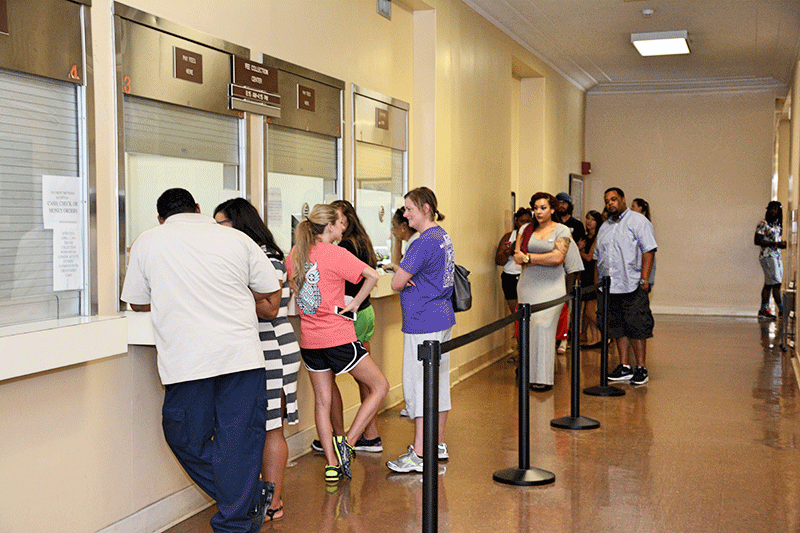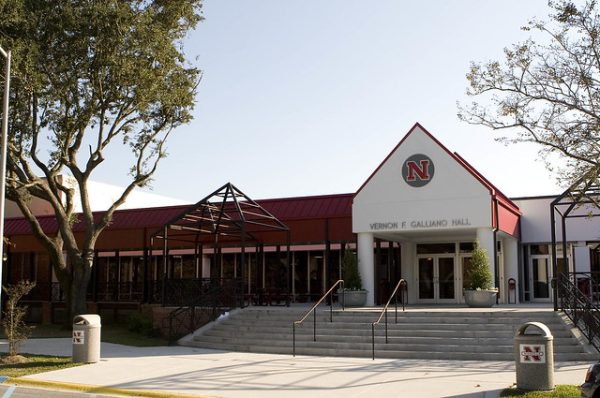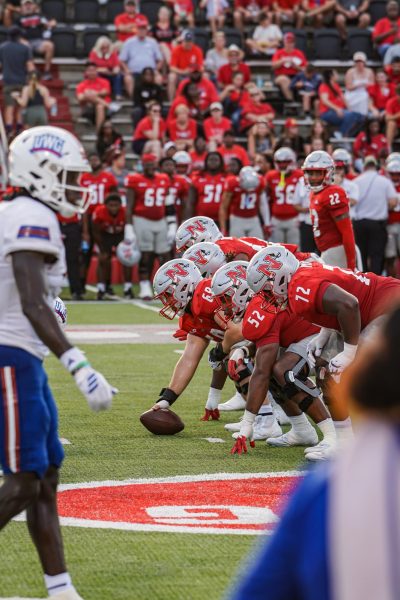Students to see benefits of additional fees based on credit hours
Photo by: Jeffery Miller
A line forms at collections in Elkins Hall as students pay their fees the Friday before classes resume for the Fall 2015 semester.
Beginning this semester, students who are taking 16 hours or more will be charged an additional $205.10 per hour, and certain programs will directly benefit from department-specific fees.
The decision to increase student fees was not taken lightly, according to University president Bruce Murphy. He said that he understood why students would be frustrated with increasing fees.
“The last few years our tuition and fees have gone up, but the state has pulled money out,” Murphy said. “So as a student, you’re paying more but you aren’t seeing anything.”
The fee increase should be different, according to Murphy. Students will be seeing the results of the fee increase in the form of additional class sections, more teachers, smaller class sizes and new equipment.
“Nobody minds paying more if you get something for it,” Murphy said. “So when students have had their tuition and fees go up and they see we’re no better than we were last year, it’s pretty frustrating. That’s why I’ve taken the position that I want to control the cost for the student.”
In the letter sent to students, Murphy explained that tuition is capped at the 12 hour level. Most degree programs require students to be enrolled in 15 credit hours per semester to graduate in four years.
According to Murphy, the university determined that students were enrolled in more than a million dollars’ worth of overload courses each year for which they were not being charged.
“Have you ever tried to sign up for a class and it wasn’t available? One of the reasons it wasn’t available is because people are taking more classes than they really need or signing up and then dropping them later,” Murphy said.
Lynn Gillette, provost and vice president of academic affairs, said he believes the fee increases in the culinary and Petroleum Engineering Technology and Safety Management departments would positively impact the programs.
Culinary students will be paying an additional $250 fee per semester, and Petroleum Engineering Technology and Safety Management students will pay an additional $150 per semester.
“How that money will be spent will ultimately go to the President to determine,” Gillette said. “That will give both of those programs the opportunity to make expenditures that will grow the program.”
These expenditures might include, but aren’t limited to, hiring additional faculty to make more class sections available or purchasing new equipment for the departments.
“The fees and how those fees will be used are crucial to the growth of both of those programs,” Gillette said, “So these fees are very positive for the programs.”
The PETSM program is growing very quickly, according to Milton Saidu, department head.
“Oil prices are going down. Ironically, what people don’t see from the outside is that when prices fall, it’s a good opportunity for most employees to come back to school,” Saidu said.
According to Saidu, the newly renovated classrooms were supposed to increase capacity, but are maxed out again and the department is being forced to turn students away.
“We were hoping they would alleviate the problem, but they were only a drop in the bucket,” Saidu said. “We need more classroom space and more lab equipment. That money will hire faculty, and hopefully use whatever’s left to address some of the renovations we’ll need down the road.”







